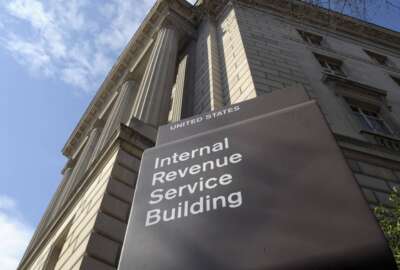Feds should expect more of the same in 2013 budget, expert says
Steve Bell, senior director of the Bipartisan Policy Center\'s Economic Policy Project, says while the President\'s proposed budget includes some interesting...
wfedstaff | June 4, 2015 5:24 pm
The new week brings a new plan for the federal budget. The President will release his request just hours from now but details are already leaking out.
“We anticipate about $3.8 trillion in spending,” said Steve Bell, senior director of the Bipartisan Policy Center’s Economic Policy Project. This is up slightly from President Barack Obama’s 2012 budget proposal of $3.73 trillion.
“But, if we can cut through all the numbers and all the political rhetoric and look at what the President is really proposing, knowing that almost none of it will become law, I think there are some interesting things in here,” Bell said.
He told The Federal Drive with Tom Temin Monday morning that the President’s budget asks for an increase of about $4 trillion in deficit reduction over the next 10 years.
“If that would occur, we would avoid the kind of mindless sequestration, the across-the-board cuts that are scheduled to go into effect in January of 2013,” he said. “So he has reacted very firmly to that threat.” Many of the proposals the President floated during last year’s budget negotiations are included in the budget he’s submitting today.
“One thing that most people will talk about is that there are a tremendous amount of tax increases in here,” Bell said. “Higher taxes on corporations, on wealthy taxpayers, including the expiration of the Bush tax cuts on upper-income people. He does ask for some minor changes in federal workers contributing more to their own retirement.”
Bell added that the President will propose a 0.5 percent increase for federal employees’ compensation, as well as a request for a larger contribution to the Federal Employees Retirement System (FERS). “I think there will be slightly higher premiums for pension insurance,” he said.
While the proposed budget will include changes that will directly affect federal workers, Bell is quick to point out that “none of this will become law.”
“A President always ‘proposes,’ and a Congress always ‘disposes,'” he said. “I think in this case we’ve seen a Congress that hasn’t even been able to do that for the last three or four years. So gridlock, that very trite phrase, will prevail and probably we will go through the entire year without any clear guidance on what 2013 will look like for federal agencies or federal agency managers.”
Bell recommends that federal managers follow their current strategy — assume nothing will increase and plan accordingly.
“Prepare for, at least, a partial sequester, perhaps not the whole $1.2 trillion, but a partial sequester of some kind starting in January 2013,” he said.
RELATED STORIES
Obama’s budget headed to Congress
Lower requests likely in President’s FY2013 budget
Copyright © 2025 Federal News Network. All rights reserved. This website is not intended for users located within the European Economic Area.
Michael O’Connell is senior digital editor of Federal News Network optimizing content for the best user experience. Follow @moconnellWFED
Follow @moconnellWFED






